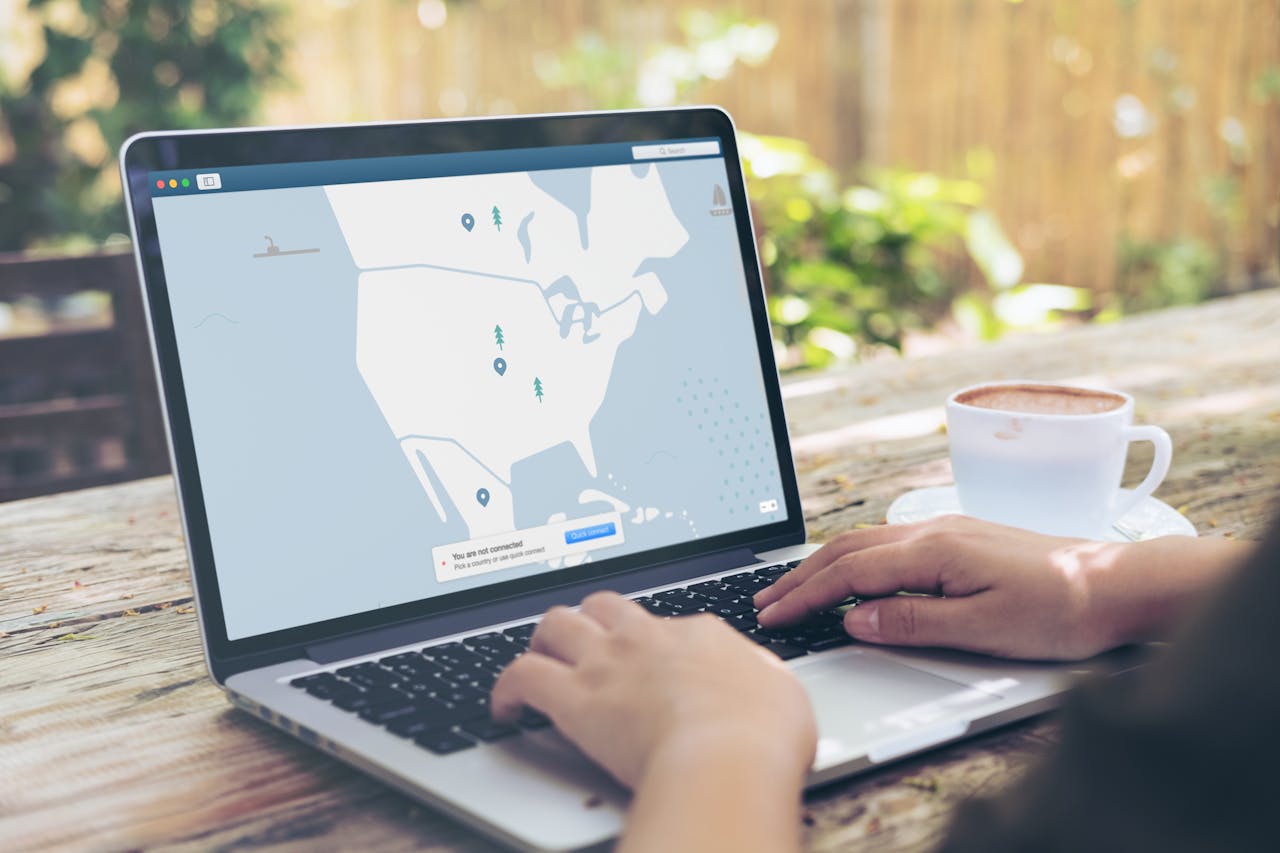Key Takeaways
- VPNs offer a range of benefits beyond just security and privacy.
- Data protection is enhanced, especially on public networks.
- VPNs can provide access to region-restricted websites and services.
- There are misconceptions about VPNs that need clarification.
Enhanced Security and Privacy
In the digital realm, safeguarding one’s online presence is increasingly critical, and this is where Virtual Private Networks (VPNs) excel. VPNs encrypt internet traffic, ensuring personal data remains secure from prying eyes. This deep encryption means that even if data is intercepted, it remains unreadable and thus unusable to cybercriminals. Whether for professional or personal use, the advantages of VPNs are substantial, offering peace of mind in an era where data breaches are widespread. Knowing how VPNs operate can be reassuring for those curious about VPN safety, as they frequently employ the latest encryption technologies to maintain high levels of security.
Beyond securing private information, VPNs play a critical role in maintaining the confidentiality of online activities. By masking IP addresses, VPNs prevent third parties, such as ISPs or websites, from tracking browsing behavior, thus ensuring privacy. This makes VPNs a valuable tool for tech-savvy users and anyone looking to maintain higher privacy online.
Safety on Public Networks
Public Wi-Fi networks, though convenient, come with their own set of vulnerabilities. These networks, found in cafes, airports, and hotels, are often unsecured, which makes them a prime target for cybercriminals. All transmitted data is encrypted using a VPN, transforming an otherwise risky network into a more secure environment. This encryption is particularly valuable to frequent travelers and business professionals who rely on such public networks for connectivity.
Furthermore, VPNs offer an extra layer of protection by masking the user’s IP address, making it exceedingly difficult for hackers to launch targeted attacks. This anonymization protects sensitive information and against potential breaches from personal information accessed through insecure connections. For savvy users who prioritize digital security, a VPN is not just a luxury; it’s necessary for safe browsing on public networks.

Global Access and Unblocking Restricted Content
VPNs are not just security tools but gateways to a borderless internet experience. With a VPN, users can bypass geographical restrictions imposed by websites and online services. This is an incredible advantage for accessing streaming platforms, news sites, or any digital content that might be restricted based on the user’s physical location. VPNs can traverse these digital walls, whether users travel or simply looking to access content from another region.
This ability to unlock content is particularly beneficial for expatriates or digital nomads. It allows them to stay connected to their home country’s cultural media and news, maintaining a sense of connection despite physical distance. According to TechCrunch, VPNs’ flexibility in bypassing internet censorship is instrumental in fostering open access to information worldwide, creating an equal playing field for internet users globally.
Data Privacy and Protection
As data breaches become more frequent, data privacy and protecting personal information online are increasingly vital. VPNs safeguard against these threats by keeping user data private, even when connected to less secure networks. They act as a barrier, preventing Internet Service Providers (ISPs) and government surveillance agencies from monitoring users’ online activities.
Incorporating a VPN into one’s cybersecurity strategy means taking proactive steps to protect sensitive personal data. VPNs enhance security, whether banking information, personal messages, or private data, making unauthorized access significantly more difficult. This layer of security gives users the confidence they need to engage fully with the digital world while keeping their private information out of reach.
VPNs are Cost-Effective
Many might assume that enhancing digital security through VPNs is costly, but this is far from the truth. Various VPN providers offer competitive pricing plans that cater to different needs and budgets, often with the option of monthly or annual subscriptions that significantly reduce costs. This affordability makes VPNs accessible to many users, from individuals to small businesses.
The return on investment is substantial, considering the potential cost of data breaches or the loss of sensitive information. Users can prevent these expensive problems before they start by opting for a VPN, making VPNs a cost-effective tool and a wise financial investment in personal and professional security.
Common Misconceptions About VPNs
Despite their growing popularity, VPNs are often surrounded by myths and misconceptions. A common belief is that VPNs guarantee complete anonymity. While they significantly improve privacy by masking IP addresses and encrypting data, they do not make users entirely invisible online. The level of anonymity depends on the VPN provider’s policies and data storage practices.
Another widely held belief is that VPNs drastically slow down internet speeds. While encryption can cause slight performance changes, many modern VPNs are optimized to ensure minimal impact on speed. Understanding these subtleties enables users to make knowledgeable choices about effectively utilizing VPN technology.
Choosing the Right VPN for Your Needs
With numerous VPN services available, selecting the right one can be daunting. Important considerations include the number of server locations, speed, privacy policies, and extra features like a kill switch or split tunneling. Some VPNs specialize in streaming content, while others emphasize security features.
Users should assess their primary needs—whether for security, streaming, or general browsing—and find a VPN that meets these requirements. A well-suited VPN can vastly enhance internet use, ensuring a safe and unrestricted experience tailored to users’ needs.
Future Trends in VPN Technology
The realm of VPN technology is constantly evolving, propelled by artificial intelligence and machine learning developments. These technologies will likely make VPNs more intuitive and adaptive to user needs, automatically adjusting settings for optimal security and performance. Such innovations could result in more robust protection and straightforward user interfaces.
Additionally, as digital landscapes change, VPNs are expected to grow in importance. They will become integral to protecting IoT devices and enhancing online privacy protocols. Monitoring these trends can assist users in improving their online experience, making VPNs an essential element of digital life in the future.







